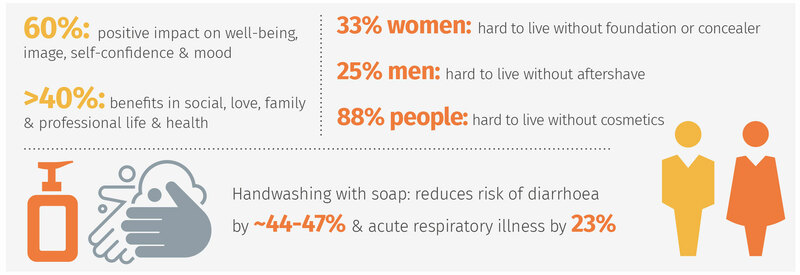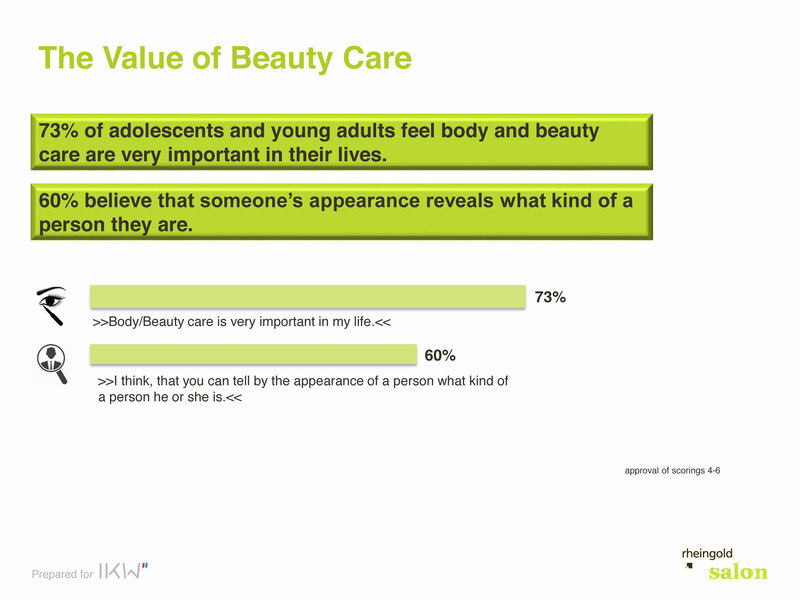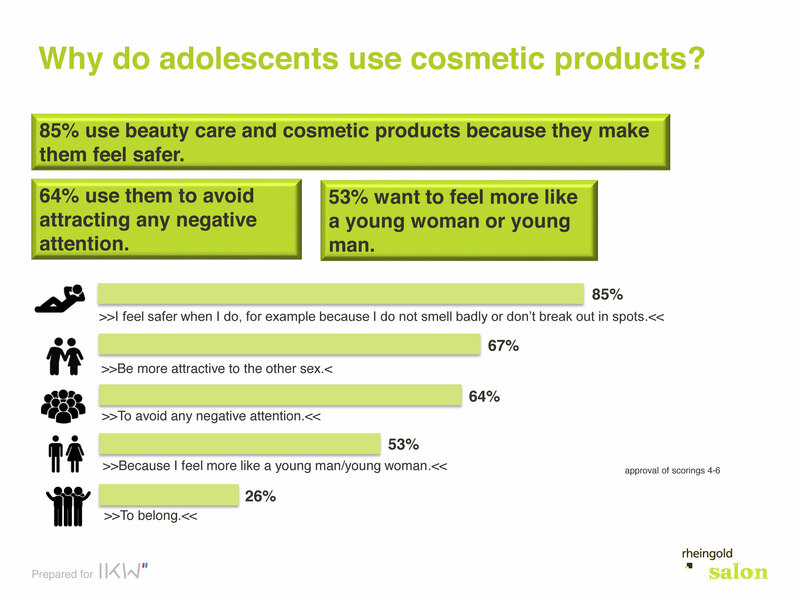While some people believe that cosmetic and personal care products are a recent invention, discoveries of their use and widespread benefits go back thousands of years. Today, Europe’s 500 million consumers use them to protect their health, enhance wellbeing and boost their self-esteem.
Benefits of cosmetics
Functional benefits
Cosmetics contribute to wellbeing and healthy lifestyles. Our hands carry pathogens from contaminated sources; so simple tasks such as washing hands with soap can help prevent serious illness. Indeed, multiple studies have shown that the leading causes of child mortality in developing countries, diarrhoea and respiratory infections, can be prevented by hand washing with soap. The use of toothpaste, particularly when containing fluoride, reduces the prevalence of dental caries. Toothpaste reduces plaque and tartar, which can lead to tooth damage and gum disease. Beyond health, there are economic advantages to dental care: there is strong evidence that the benefits of preventing tooth decay far exceed the costs of treatment. Indeed, if we assume that, without toothpaste, total expenditure on oral health would be 5% higher, the total benefits of using toothpaste (in terms of avoided costs) would be approximately €26.5 billion by 2020.
Exposure to ultraviolet radiation is the only established exogenous causal factor for melanoma, a type of skin cancer that can spread to other organs of the body. Consistent and optimal use of sunscreen may prevent the incidence of melanoma. A study carried out between 1992 and 2006 and reported in ‘Reduced melanoma after regular sunscreen use: randomised trial follow up’ in the Journal of Clinical Oncology (2011) examined the cancer rates of two groups of adults aged between 25 and 75 years old. One used sunscreen daily and the other did so at their discretional frequency. It was found that invasive melanoma was reduced by 75% for approximately 15 years after trial cessation in the group that applied sunscreen daily.
Emotional benefits
Beyond physical health, cosmetics can help to improve our mood, enhance our appearance and boost our self-esteem. They can also help to exhibit personal style and, as such, are an important means of social expression. In a study by FEBEA, over 60% of respondents claimed that cosmetics have a positive impact on well-being, image, self-confidence and mood, with a large proportion (+40%) also identifying benefits in terms of social life, love life, family life, professional life and health.
A study published by IKW, the German Cosmetic, Toiletry, Perfumery and Detergent Association, assessing the self-perception of adolescents and young adults, found that 73% believe body and beauty care is very important in their lives. Moreover, 85% feel safer when they use cosmetics products, and 63% feel more attractive when they do so.
A study by the Renfrew Centre Foundation found that women wear make-up because they like the way it makes them look (48% of respondents), and because cosmetic use makes them feel good (32%). Indeed, multiple studies have found that wearing cosmetics can improve people’s self-confidence and self-image.
The Look Good Feel Better (LGFB) charity isdedicated to improving the self-esteem, confidence and well-being of women and teenagers undergoing cancer treatment. The charity is supported by over 50 leading companies and brands from the cosmetics industry. LGFB helps to improve self-image and appearance through free group and self-help skincare and make-up workshops. The service is available in 26 countries worldwide and over 1.87 million people have been supported to date. A major research project by LGFB highlighted that 97% of respondents felt more confident after attending a LGFB workshop and that the effects of this are enduring, with 96% of respondents still feeling more confident three months later (out of 2,000 beneficiaries contacted).
Maintaining and extending benefits of cosmetics
All cosmetic products and their ingredients are governed by the comprehensive and stringent European Cosmetics Regulation to ensure they are safe for use. The Regulation dictates the colours, UV filters and preservatives that are allowed for use in cosmetics, which ingredients are restricted for certain types of use or by percentage, and which may not be used at all. Every cosmetic product must also be assessed for safety by a qualified professional safety assessor and this takes into account how the product is made, how it will be used and by whom.
Furthermore, all cosmetics made available in the EU must display a complete list of ingredients and have the same name in all countries: this helps consumers identify products with ingredients to which they know they are sensitive. The ingredients must comply with European requirements and use the International Nomenclature of Cosmetic Ingredients, known as INCI. Read about understanding the label for further detail.
Innovation in our industry is never static. Constantly evolving consumer expectations with regards to product attributes and safety means new products or iterations are always in development, increasingly geared towards personalised solutions for individual skin and hair types, for instance.
Innovation to shelf: The story of cosmetic product development
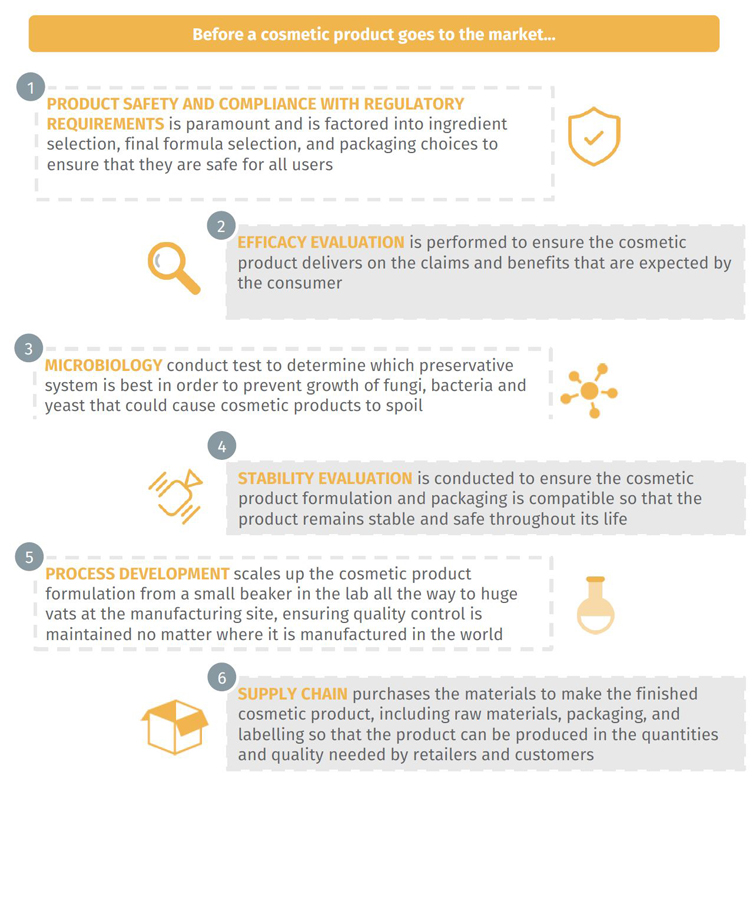
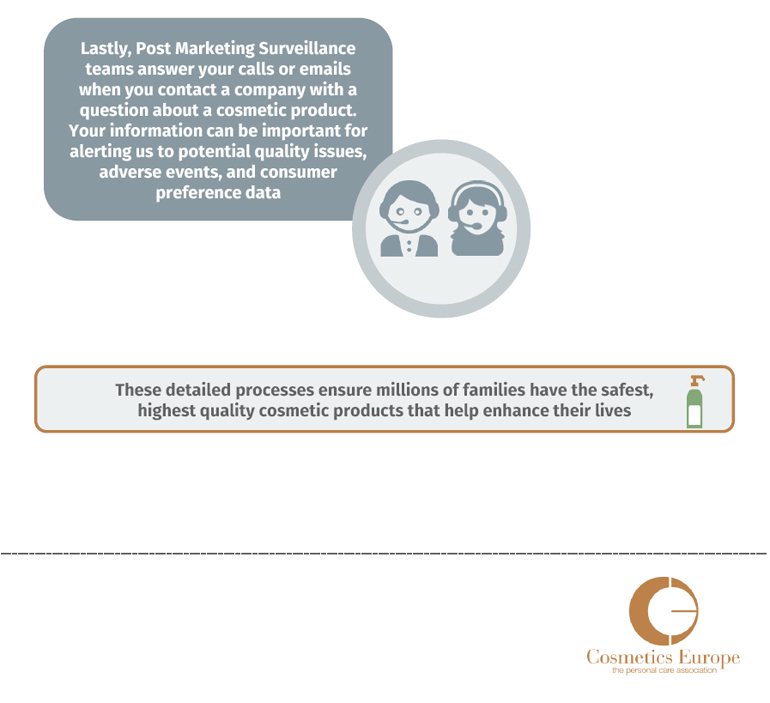
See the Cosmetics & personal care in your country section if you are a consumer and have any specific questions regarding cosmetics and are looking for relevant local resources and services.
